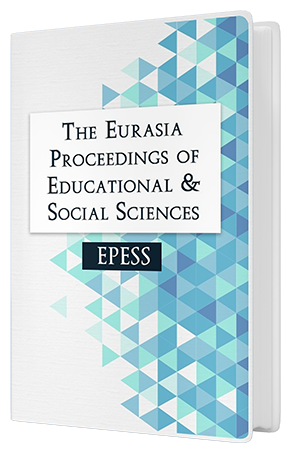How Close Are Teachers to Think in a Scientific Manner?
Keywords:
Scientific thinking, Teacher experience, Evaluation, 2023 Education visionAbstract
Lately, The Ministry of National Education (Turkey) has announced ‘2023 Education Vision’ for raising qualified generations equipped with a variety of skills and for meeting the needs of educators. Students, families, teachers and schools are four primary elements of the report. Especially upskilling teachers who appeal future generations and evaluating their skills are often referred in the report. In this regard, the present survey study aimed to determine and compare scientific thinking skills of teachers in accordance with their working experiences. Sampling of the study comprised of 62 teachers working in schools of Aegean region of Turkey from a variety of disciplines such as mathematics, science, and information technologies, and of working experiences from 1 to 28 years. Data of the study are gathered through sequential inquiry-based activity sheets administered simultaneously with the implementation of inquiry-based activities regarding electromagnetism. Findings of the study revealed that teachers had irrational and intuitive levels of thinking skills at the beginning and they could improve their level of thinking through activities and approached to think more in a scientific manner. However, this improvement differed as working experience changes. Novice teachers who have working career for less than 2 years could not show statistically significant improvement in their statements, in contrast, well-experienced teachers showed statistically significant increase in their scientific thinking scores. They could record their predictions and explanations consistently by considering variables, and evidence-data, they could make observations in an objective way which are the analyzing criteria determined by considering the literature. With the light of the findings, it is argued that especially novice teachers need support to improve their abilities and that they could be encouraged in a longer period with such inquiry-based activities fostering their thinking skills which eventually result in having scientific thinking generations as intended in 2023 education vision.Downloads
Published
Issue
Section
License
Copyright (c) 2019 The Eurasia Proceedings of Educational and Social Sciences

This work is licensed under a Creative Commons Attribution-NonCommercial-ShareAlike 4.0 International License.
The articles may be used for research, teaching, and private study purposes. Any substantial or systematic reproduction, redistribution, reselling, loan, sub-licensing, systematic supply, or distribution in any form to anyone is expressly forbidden. Authors alone are responsible for the contents of their articles. The journal owns the copyright of the articles. The publisher shall not be liable for any loss, actions, claims, proceedings, demand, or costs or damages whatsoever or howsoever caused arising directly or indirectly in connection with or arising out of the use of the research material. All authors are requested to disclose any actual or potential conflict of interest including any financial, personal or other relationships with other people or organizations regarding the submitted work.




